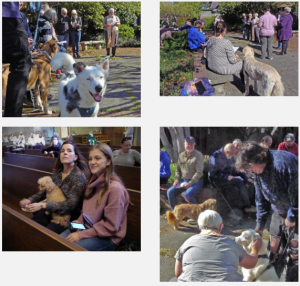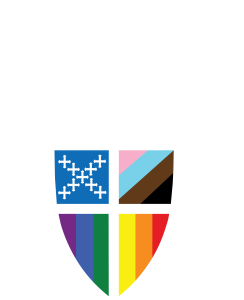As we bid farewell to our glorious summer season and head into autumn, our thoughts may turn to preparing for darker and colder days ahead. How are we to responsibly save enough of our resources for the proverbial “rainy days” ahead while staying true to our Christian values of sharing with others—even with strangers—all while protecting our Mother Earth?
For this task, we might turn to Pope Francis’s encyclical, “Laudato Si’: On Care for our Common Home” (2015). Laudato Si’ (Praise be you, Lord) is the first line of Saint Francis of Assisi’s “Canticle of the Creatures,” which continues, “Praise be you, Lord, through our Sister, Mother Earth, who sustains us, and who produces various fruits with colored flowers and herbs.” The encyclical notes that the teachings in the creation accounts in the book of Genesis “suggest that human life is grounded in three fundamental and closely intertwined relationships: with God, with our neighbors, and with the earth itself” and states that “Humanity still has the ability to work together in building our common home.”
Our efforts to implement principles of Laudato Si’ into our ministry are literally bearing fruit, both in the greening of our environment and in our concern for social justice and the poor. One manifestation is our parish vegetable garden, which is already yielding a bountiful harvest mere months after planting, and being shared through “Food Is Free” at the Tacoma Food Bank.
Laudato Si’ notes that a true ecological approach is always a social approach: we must integrate questions of justice into debates on the environment: “the cry of the earth is also the cry of the poor.”
Even temperate Tacoma is not immune to potentially devastating effects of climate warming on our environment. Seattle Times staff writer Fiona Martin has noted that wild animals and plants, even on majestic Mount Rainier (Tahoma), are at risk of local extinction because of changing conditions essential to their survival: “Glaciers have lost on average 40% of their volume in Washington since the 1980s.” Not only are wildflowers, mountain goats, marmots, pikas, and white-tailed ptarmigans at risk, but above all, the keystone salmon who rely on the cooling of the glacial melt each summer and are the staple diet of our beloved orcas.
As we celebrate creation and creatures during this season, let us also consider how to walk more gently on the earth, and may we pray for the courage not to lose heart, and to persevere for the good of our parish, our community, and our Mother Earth, in the name of God.



